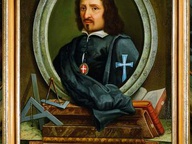Sergio Staino Un viaggio a Berlino, 1981

Sergio Staino Un viaggio a Berlino, 1981, GAM, Torino
Dal 20 February 2015 al 6 April 2015
Torino
Luogo: GAM – Galleria Civica d'Arte Moderna e Contemporanea
Indirizzo: via Magenta 31
Curatori: Danilo Eccher
Telefono per informazioni: +39 011 4429518
E-Mail info: gam@fondazionetorinomusei.it
Sito ufficiale: http://www.gamtorino.it
Lo spazio Wunderkammer della GAM di Torino, tradizionalmente dedicato alla valorizzazione dei fondi grafici del museo, si apre ad accogliere un avvincente fuori programma, dedicando una mostra a uno dei più conosciuti e amati disegnatori satirici italiani, Sergio Staino. Sia Staino che il suo personaggio più famoso, Bobo, sono noti al grande pubblico fin dalla fine degli anni Settanta, quando l’alter ego del disegnatore è apparso per la prima volta sulle pagine di Linus. Da quel momento il personaggio è stato protagonista su gran parte della stampa italiana. Bobo, autoritratto dell’autore scanzonato e ironico, riassume in sé le caratteristiche di un italiano medio borghese di sinistra, simbolo di una precisa generazione, a volte nostalgico e utopista, che guarda alle trasformazioni della società italiana con ironia e buon senso, senza risparmiare momenti di critica profonda.
La storia che Bobo ci racconta nelle sale della GAM si svolge in un unico anno, il 1981, quando l’autore si reca a Berlino per raccontare la città con i suoi disegni, su invito di Detlef Heikamp, uno storico dell'arte berlinese rimasto piacevolmente colpito da una vignetta pubblicata in Germania. E Bobo, spesso armato di macchina fotografica al collo, si ritrova a esplorare una città dalle mille contraddizioni e dal grande fascino. Una metropoli in forte espansione architettonica e soprattutto culturale, inserita però nel cuore del comunismo europeo. Come racconta lo stesso Staino “Ogni angolo era una scoperta, una sorpresa, una suggestione: Berlino in quegli anni là era una città veramente unica per la quantità di contraddizioni politiche e sociali che faceva coesistere in se stessa (…)” Per questo nei disegni vediamo spesso il protagonista che si aggira tra i caffè alla moda come un qualsiasi turista curioso, osserva quasi sperduto le costruzioni commerciali con le insegne al neon e i negozi del KaDeWe strapieni di merci, e si ritrova a tu per tu con i turisti alla ricerca di Christiane F intorno alla Banhof Zoo. Incontra gli stessi berlinesi, anch'essi spaesati di fronte alla distruzione e ricostruzione del tessuto urbano, e alcuni altri immersi in una nuova realtà: sono gli Hausbesetzer, giovani occupanti di case sfitte, organizzati in vere e proprie “comuni” dove anche Bobo sogna una vita sociale solidale e libertaria.
Ma tutto questo “nuovo che avanza” si contrappone con un’altra Berlino: alcuni disegni non hanno Bobo protagonista, che diventa invece un attento osservatore esterno. E queste vignette si presentano con un tratto più graffiante e cupo, sono popolate da personaggi inquieti, vedove inconsolabili, spesso vengono raffigurati i luoghi vicino o oltre il muro, con polizia e squadre antisommossa, manifestazioni o semplici paesaggi urbani di desolanti periferie. E le vetrine in Kurfürstendam, non più sfavillanti ma distrutte dagli scontri. Dice Staino: “Avvicinandosi al confine con la Repubblica Democratica, e soprattutto al muro, l’atmosfera della città si faceva più scura e deprimente e la contraddizione tra la vitalità lussuosa dell’Ovest e la tristezza poliziesca dell’est si facevano evidenti. (…) Non è un caso che i disegni su Berlino si chiudano proprio su questi aspetti di lotte, di violenze, di irruzioni, di erba da fumo, di cene frugali e vegetariane ma anche, ovviamente, di sogni, di amore e di tanta poesia”
La storia che Bobo ci racconta nelle sale della GAM si svolge in un unico anno, il 1981, quando l’autore si reca a Berlino per raccontare la città con i suoi disegni, su invito di Detlef Heikamp, uno storico dell'arte berlinese rimasto piacevolmente colpito da una vignetta pubblicata in Germania. E Bobo, spesso armato di macchina fotografica al collo, si ritrova a esplorare una città dalle mille contraddizioni e dal grande fascino. Una metropoli in forte espansione architettonica e soprattutto culturale, inserita però nel cuore del comunismo europeo. Come racconta lo stesso Staino “Ogni angolo era una scoperta, una sorpresa, una suggestione: Berlino in quegli anni là era una città veramente unica per la quantità di contraddizioni politiche e sociali che faceva coesistere in se stessa (…)” Per questo nei disegni vediamo spesso il protagonista che si aggira tra i caffè alla moda come un qualsiasi turista curioso, osserva quasi sperduto le costruzioni commerciali con le insegne al neon e i negozi del KaDeWe strapieni di merci, e si ritrova a tu per tu con i turisti alla ricerca di Christiane F intorno alla Banhof Zoo. Incontra gli stessi berlinesi, anch'essi spaesati di fronte alla distruzione e ricostruzione del tessuto urbano, e alcuni altri immersi in una nuova realtà: sono gli Hausbesetzer, giovani occupanti di case sfitte, organizzati in vere e proprie “comuni” dove anche Bobo sogna una vita sociale solidale e libertaria.
Ma tutto questo “nuovo che avanza” si contrappone con un’altra Berlino: alcuni disegni non hanno Bobo protagonista, che diventa invece un attento osservatore esterno. E queste vignette si presentano con un tratto più graffiante e cupo, sono popolate da personaggi inquieti, vedove inconsolabili, spesso vengono raffigurati i luoghi vicino o oltre il muro, con polizia e squadre antisommossa, manifestazioni o semplici paesaggi urbani di desolanti periferie. E le vetrine in Kurfürstendam, non più sfavillanti ma distrutte dagli scontri. Dice Staino: “Avvicinandosi al confine con la Repubblica Democratica, e soprattutto al muro, l’atmosfera della città si faceva più scura e deprimente e la contraddizione tra la vitalità lussuosa dell’Ovest e la tristezza poliziesca dell’est si facevano evidenti. (…) Non è un caso che i disegni su Berlino si chiudano proprio su questi aspetti di lotte, di violenze, di irruzioni, di erba da fumo, di cene frugali e vegetariane ma anche, ovviamente, di sogni, di amore e di tanta poesia”
SCARICA IL COMUNICATO IN PDF
COMMENTI

-
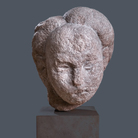 Dal 20 February 2026 al 19 July 2026
Roma | Mercati di Traiano Museo dei Fori Imperiali
Dal 20 February 2026 al 19 July 2026
Roma | Mercati di Traiano Museo dei Fori Imperiali
Constantin Brâncuși. Le origini dell’Infinito
-
 Dal 18 February 2026 al 19 July 2026
Padova | Centro Culturale Altinate | San Gaetano
Dal 18 February 2026 al 19 July 2026
Padova | Centro Culturale Altinate | San Gaetano
M.C. ESCHER. Tutti i capolavori
-
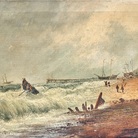 Dal 14 February 2026 al 31 May 2026
Parma | Palazzo Tarasconi
Dal 14 February 2026 al 31 May 2026
Parma | Palazzo Tarasconi
Impressionisti: 100 anni di riflessi. Gli Impressionisti da Monet a Bonnard
-
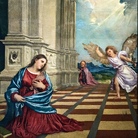 Dal 14 February 2026 al 16 April 2026
Ancona | Pinacoteca Civica Francesco Podesti
Dal 14 February 2026 al 16 April 2026
Ancona | Pinacoteca Civica Francesco Podesti
TIZIANO VECELLIO E LORENZO LOTTO. Due capolavori del Rinascimento alla Pinacoteca Civica di Ancona per due mostre studio
-
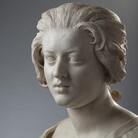 Dal 12 February 2026 al 14 June 2026
Roma | Galleria Nazionale d’Arte Antica in Palazzo Barberini
Dal 12 February 2026 al 14 June 2026
Roma | Galleria Nazionale d’Arte Antica in Palazzo Barberini
BERNINI E I BARBERINI
-
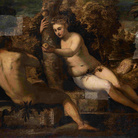 Dal 11 February 2026 al 7 June 2026
Venezia | Gallerie dell’Accademia
Dal 11 February 2026 al 7 June 2026
Venezia | Gallerie dell’Accademia
Tintoretto racconta la genesi. Ricerca, analisi e restauro
